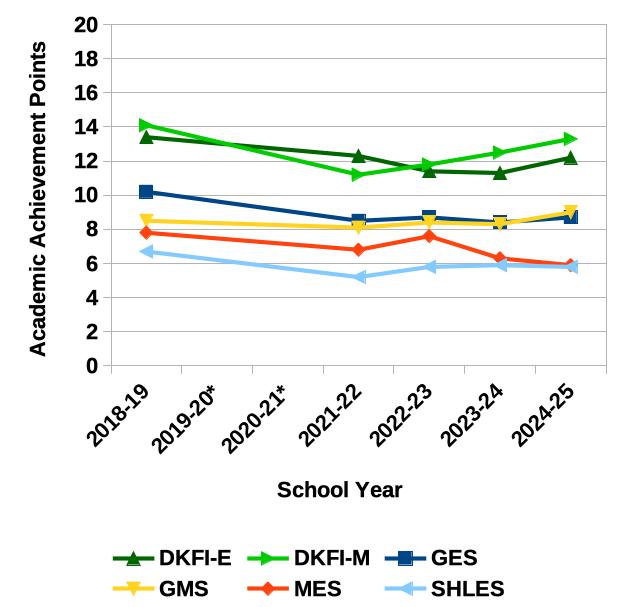Nearly every day, Zachary Shattuck is at the Greenbelt Aquatic & Fitness Center. He does laps in the pool, over and over: crawl, breast stroke, butterfly, back stroke, all classic strokes. When watching him, it appears he has taken the name of the stroke as a command. He flies through the water.
Greenbelt’s pool is not the U.S. Olympic and Paralympic Training Center in Colorado where he usually trains, but it works. He is here. The pool is here. And the World Para Swim events are happening in a few weeks, so he trains.
Shattuck, 26, competed in the Tokyo Paralympics (a world-class competition held for athletes with physical and mental disabilities) last fall. He medaled a few times at prior world championships and Para Pan American championships, including bronze in 2017 in Mexico City and silver in Peru in 2019. Shattuck competed in several events in Tokyo in 2021, making his first final in the 200 IM (individual medley) and setting two new American records at the Games.
Last fall, the Downs clan – including Zach’s uncle, Paul Downs, who was Greenbelt’s Outstanding Citizen for 2017, and Zach’s mother, Theresa Downs Shattuck, as well as his grandmother, Dee Downs, and grandfather, Jack Downs – watched the Tokyo games on a big screen they set up in Greenbelt. Later that fall, Jack Downs died suddenly of acute leukemia. Now Shattuck is doing his workouts in Greenbelt to be near his grandmother.
In early April, he will travel to Indianapolis to compete in one of four World Para swim series events. From these meets, 25 swimmers will qualify for the Paralympic Swimming World Championships and travel to Portugal this summer.
Travel
And Shattuck is eager to travel. For the Tokyo Paralympics he was part of a team of 10 men and 24 women sent from the U.S. But because of Covid, he did not get to see or experience much of Japan except for looking out the windows of the bus at the city of Tokyo as they rode from the Paralympic Village to the Aquatics Center.
He described it as “eerily quiet and hard to find that excitement level” without the normal crowds. He missed being able to eat in restaurants in the host country. He hopes to go back someday to really visit. The 2022 team going to Europe will be a smaller contingent. In addition, he is still hoping to make the 2023 team to compete in the Para Pan Am games in Chile next year and then hopefully on to Paris for the Olympics/Paralympics in 2024.
Shattuck has also competed in Lima, Peru; London; Mexico City; Singapore; Tokyo; and throughout the United States. He loved his experiences, especially in Peru, where there was a brief trip to visit Machu Picchu, and in Singapore where they stayed in “a super fancy hotel with three towers and what looked like a spaceship on top.” The views of the harbor in Singapore were “spectacular,” especially from the rooftop infinity pool (they competed at a separate aquatic facility), and he loved the Asian food.
Start of Swimming
Shattuck grew up swimming with his family at a summer cabin on the Cacapon River and was always athletic. In high school, Shattuck was captain of the soccer team, on the wrestling team and played junior-varsity basketball. But in the summer of 2013, he and his family attended a conference for people with dwarfism hosted by Little People of America which connected them to the Dwarf Athletic Association of America, where doctors and sports promoters work with children and families to encourage physical development and healing through physical activity. While there, Shattuck signed up for a couple of swim races, and he heard about the Paralympics from another family. He was hooked; it was another opportunity to excel in sports which he loved.
Shattuck began swimming competitively the summer of 2014 when, as an entering freshman at Frostburg State University, he met with the swim coach about the possibility of getting some help. The coach encouraged him to join the swim team, and looking back, he said, “It was the best decision I’ve ever made.” He credits his Coach Justin Anderson, and all of his teammates, friends and family with getting him to the elite level.
He earned a degree in parks and recreation and he taught kayaking and canoeing for two summers at a lake in Carroll County through the parks system there. In addition, he was the assistant swimming coach for Mary Washington University in Virginia before going off to train in Colorado after he was chosen for the U.S. Paralympic team.
Swimming in general is a lonely sport, in one’s own lane, rather than collaborating with a whole group. Shattuck describes it as “a sport all by yourself where you have to pull from your own energy.” Swimming at the elite level requires extreme dedication, commitment and perseverance, and mental tenacity whether an Olympian or Paralympian. Paralympians though, have additional challenges that make competing more difficult.
Paralympians
Paralympians who have dwarfism, such as Shattuck, have shorter-than-average arm and leg length and need to move twice as fast to pull the same amount of water and cover the same distance. Paralympians with missing limbs or with some paralysis are not allowed prosthetics in the race. These swimmers begin the race in the water instead of diving from a block. Paralympians with blindness may require a “tapper” to alert them when they are nearing the wall. Deaf swimmers need a light-strobe to start the race.
The meets are designed with categories of swimmers’ racing needs. They compete according to those specializations, and their scores are compared against other elite times and world records on a point system that resembles advanced physics or calculus. But calculus or not, top winners in world meets, such as Shattuck, are all faster than the average person.
Upcoming Competition
Shattuck’s roommate in Colorado, Evan Austin (who took gold in Tokyo), is quoted on the main webpage for U.S. Paralympic Swimming: “Even though I was born with a disability and some of my teammates had an accident or inherited their disability in the middle of their lives, we just adapt and conquer.”
That attitude is one of the reasons Shattuck is looking forward to seeing his friends at the upcoming Indianapolis meet. He is also excited that the sport is growing and there are a lot of younger swimmers coming up.
When pushed to recall his successes, Shattuck thinks he has set 26 American records over his seven years of competition. “I want to watch my records get broken,” he said, “because it pushes you to compete versus being in the lane by yourself. It’s more exciting when the races are close.”
To learn more about the upcoming Paralympics competitions, follow the news coverage or to contribute to support the program, visit teamusa.org/USParaSwimming.



